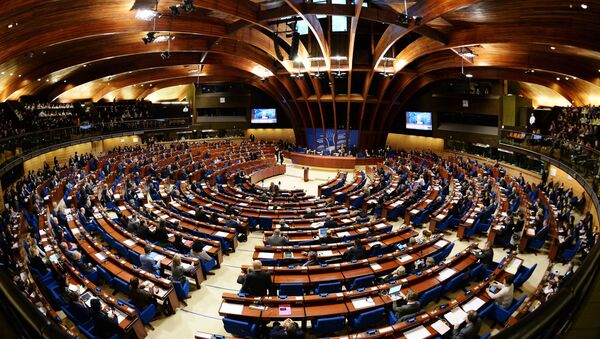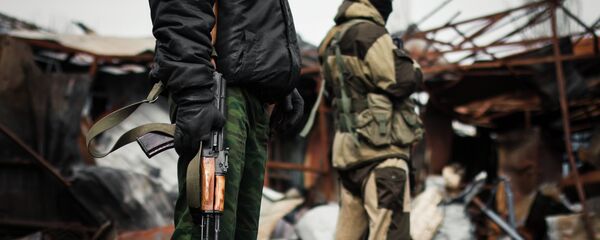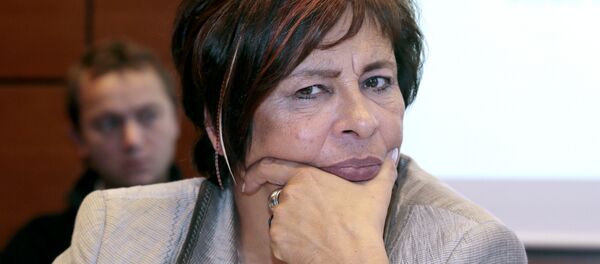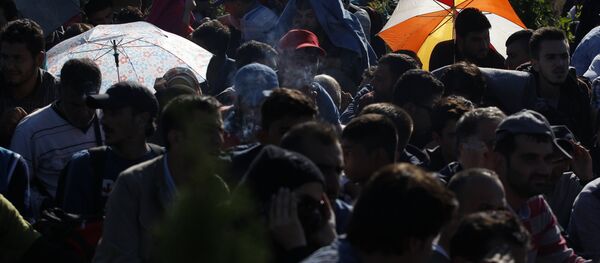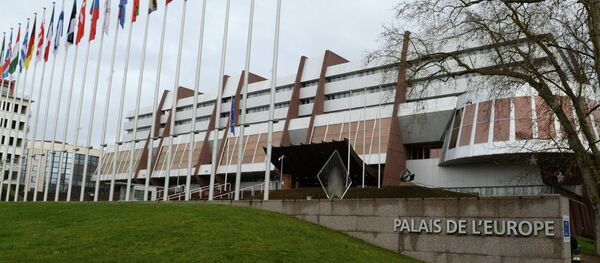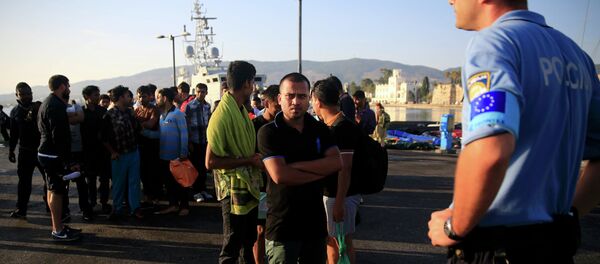STRASBOURG (Sputnik), Daria Chernyshova – The lawmakers from 47 countries of the Council of Europe stressed the necessity to address in a dignified way the challenge that Europe is facing, that includes helping the countries of transit, respecting human rights of the refugees, as well as reviewing the Dublin regulations.
Facing Migration Challenge
The lawmakers concluded that the Dublin Convention is not working and called for an urgent review of the document.
The resolution suggests that the Dublin system — a document stipulating that the first EU member country entered by a refugee must process their asylum application — is not capable of functioning as a burden-sharing mechanism to ensure the even distribution of refugees.
Another resolution adopted Tuesday is entitled "Countries of transit: meeting new migration and asylum challenges." The resolution recommends the European Union to ensure coherency in its overall migration policy, taking a so-called triangular approach, involving the countries of origin and transit. It also urges improving the protection of migrants' rights in transit countries, greater investment in transit countries, and stipulates the inclusion of adequate and effective resettlement policies.
Moreover, the resolution urges that asylum seekers not to be returned to countries such as Lebanon, Turkey, Jordan, Macedonia, Serbia or Hungary that already bear a disproportionate refugee population, or to those states where protection of refugees is not guaranteed.
"I hope that we are going to have action after all those debates," the president of the assembly, Anne Brasseur, told journalists Friday.
Serbian Prime Minister addressed the Assembly on Thursday stressing that his country's approach to the refugees passing through its territory is "more European" than those of some EU states.
"I have to say that we acted from time to time in even a more European way than some European countries, and we will stay on that path," Aleksandar Vucic said Thursday.
"We want to share the responsibility, we want to send a very clear message that we belong to that club even under that very difficult circumstances," Vucic said, reiterating Serbia's desire to join the European Union.
Russia's Role
During the debates this week, the lawmakers noted several times, that Russia, which is not participating in the work of the Assembly, needs to be engaged to face the common challenges.
The lawmakers stressed that PACE and Russia must make reciprocal steps toward one another to restore the quality of their relationship by next year.
"We need to do more, we have to think what we can do, because if we don't do anything until January, we will not have the majority we need [to restore Russia's credentials in PACE]," Swiss lawmaker Andreas Gross said Thursday.
Gross said the same appeal has been extended to Russia to "show some openness to our values." Sergei Naryshkin, the speaker of the Russian lower house of parliament and leading PACE delegate, warned earlier that Russia may suspend its work in the 47-member legislature.
The chairman of the Swiss delegation to PACE told Sputnik that Russia's decision to use its air force to fight Islamic State in Syria is likely to have a positive influence on relations between PACE and Moscow.
"This might influence many colleagues in the Council of Europe," Doris Fiala said, clarifying that it would be a positive influence.
Pretrial Detention
On Thursday, The Parliamentary Assembly of the Council of Europe (PACE) has adopted a resolution urging states that have ratified the European Convention on Human Rights to implement measures aimed at reducing pretrial detention.
"The Parliamentary Assembly stresses the importance of the presumption of innocence in criminal proceedings. Pretrial detention (detention on remand) should be used only exceptionally, as a last resort, when alternative measures of restraint are insufficient to safeguard the integrity of the proceedings," the resolution states.
January Session
In January, the Assembly faces several changes. It will have to elect a new president, and the most likely candidate is Pedro Agramunt, who heads the European People's Party at the Council of Europe (EPP-CD) Group. He was nominated as the official candidate for the next president of the Parliamentary Assembly of the Council of Europe.
PACE has a rotating presidency selected from the five political group members. In January, current PACE President Anne Brasseur, a member of the Alliance of Liberals and Democrats for Europe Party (ALDE) group, will step down after two years in the position. The chairmanship of the organization will be transferred to an EPP Presidency.
The president of the Parliamentary Assembly of the Council of Europe is elected for one year by majority of votes and could be reelected once.
